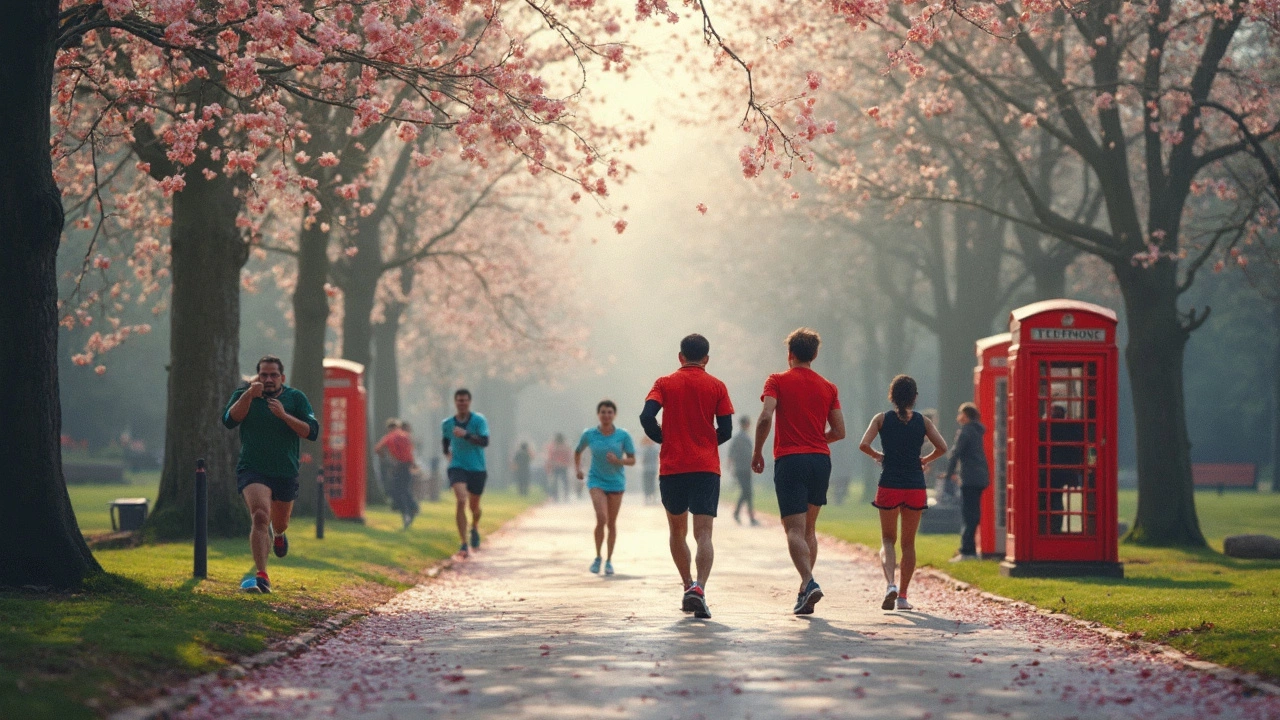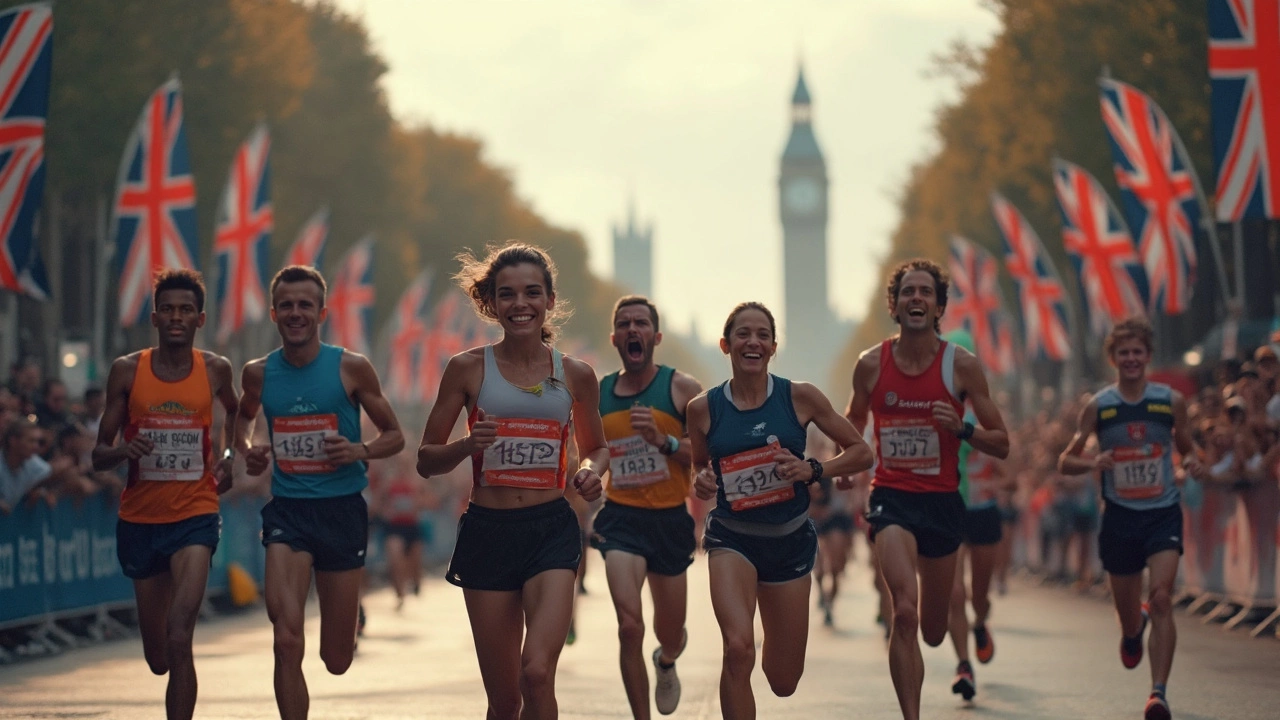Picture crossing that marathon finish line after just over six straight hours of running, power-hiking, and grit. You’re fried, exhilarated, but also replaying a question in your head: was six hours 'slow'? There’s this myth that unless you run a sub-four–or at least stay vertical on the course–you’re 'just a jogger.' It’s almost laughable how strong these ideas hold on, especially when you look at how many people actually run six-hour marathons. Is the six-hour marathon time something to be ashamed of, or does it deserve a lot more respect than folks think?
Marathon Finish Times: How Does Six Hours Stack Up?
Let’s cut to the chase: six hours for 42.195 kilometers (about 26.2 miles) means you average 8.5 minutes per kilometer, or about 13.44 minutes per mile. For most folks, that’s a fast walking pace with some running mixed in. So, is that slow? Here’s the thing—a marathon is grueling, no matter the pace. According to the data from Marathon Handbook and RunRepeat, the global average marathon finish time is just under 4:30 for men and around 5:00 for women, but that average hides a massive spread. Finish times skyrocket depending on age, gender, course, weather, and, honestly, biology. In major city marathons like New York, Chicago, or Sydney, thousands cross the finish line in the 5-6+ hour window. In fact, the median finish time at the 2023 New York City Marathon was around 4 hours 50 minutes. More than a third of runners finished after the 5:30 mark. Some official course cut-offs are seven or even eight hours, meaning organizers expect—and embrace—a wide range of paces.
Here’s a snap of average finish times from big marathons:
| Marathon | Average Finish Time (Men) | Average Finish Time (Women) |
|---|---|---|
| Boston | Approx. 3:48 | Approx. 4:05 |
| London | Approx. 4:02 | Approx. 4:27 |
| New York | Approx. 4:41 | Approx. 5:08 |
| Melbourne | Approx. 4:19 | Approx. 4:55 |
This table makes one thing clear: by the time the clock hits six hours, you’re nowhere near alone—there’s a crowd crossing after you. More race organizers are actively extending their cut-off times, realizing there’s an army of runners who are there for the experience, not a podium finish.
Where Did the Six-Hour Stigma Come From?
Some of this talk comes from the days when marathons were 'elite' territory—a rare challenge for the fittest of the fit. If you weren’t a speedy club runner, you weren’t expected to toe the line. But everything changed in the 1980s and exploded in the 2000s as mass-participation races opened the gates to everyone. Suddenly, there was an influx of charity runners, first-timers, and folks tackling personal challenges. Magazines and running forums sometimes joke about 'plodders,' but here’s a fact: participation rates and diversity in finish times have grown dramatically. According to a 2019 report from RunRepeat, the percentage of marathon runners finishing over five hours jumped from around 11% in 1996 to 36% by 2018. The sport is changing, and with that, old ideas of what’s 'slow' are falling apart. Plus, most people running marathons these days have daytime jobs, family stuff, and just don’t have the bandwidth to train for four-hour glory. They want to cross the finish line and maybe notch up a lifetime goal.
This culture shift isn’t just in the numbers. Big marathons market themselves as achievable for everyone. They fill social media with stories of first-timers finishing in 6, 7, or even 8 hours, showing more grit than many of the front-packers. With more road closures and medical support, organizers ensure everyone—from the gazelles to the turtles—gets home safe. The idea that marathons are only for 'serious' runners is dying. The six-hour finish is right in the thick of the normal wave now.

How Training, Pace, Age, and Conditions Affect Marathon Times
If you want to know whether six hours is slow, you’ve got to look at context. Training history matters—a six-hour finish on minimal training is impressive, but if someone’s been hammering interval workouts all year, they might be bummed. Age has a huge impact: a fit 70-year-old finishing in six hours deserves way more kudos than a 25-year-old who slogged through undertrained. Also, injury, illness, and stuff like tough hills or brutal weather play a role. Honestly, I’ve known runners who smashed a sub-four one year, then limped home close to six on a day with high humidity and cramps.
Here’s the breakdown of target paces for a six-hour marathon (rounded):
- Marathon distance: 42.195 km (26.2 miles)
- Required average pace (per km): around 8 minutes 32 seconds
- Required average pace (per mile): around 13 minutes 44 seconds
It’s no picnic. Holding that up-and-down for hours, especially after 32 km (aka 'the wall'), takes serious training. According to Strava, most recreational marathoners start to slow dramatically after 30 kilometers. That last 10K separates the newbies from the prepared, regardless of finish time. Preparation is usually the biggest decider—someone who gets through 18 weeks of half-consistent training deserves way more props than an under-trained front-runner bonking spectacularly.
Respecting the Finish Line: The Reality for Six-Hour Runners
No matter how fast you run, 42 kilometers is a logistical beast. You spend months training—often through dark mornings and rainy nights. Marathoners finishing in six hours are still out on course while the crowds thin and the bands pack up. There’s something gritty about sticking to a challenge for nearly three times as long as the pros. These runners don’t get the benefit of adrenaline from roaring crowds, or the energy from big cheering squads. It’s usually lonelier, and recovery can hurt more—longer time on feet equals more muscle breakdown. But the finish means just as much, sometimes more, because of the struggle.
Don’t underestimate how tough it is to mentally stay positive for six long hours. Most marathon training plans for beginners aim for this general pace—after all, not everyone is gunning for race records. It’s about endurance, determination, and finishing what you started. I’ve seen people cry with joy and relief at the finish line (myself included), and you quickly realize no one cares how fast you ran—they only care about sharing the moment. Anyone who sneers at a six-hour finish usually hasn’t been through it. The pride and achievement are just as real.

Tips to Improve Your Marathon Time—Or Enjoy the Six-Hour Experience
There’s no prize for beating yourself up over finish times. But if you’re eyeing some improvement, the good news is that shaving minutes off a six-hour marathon is totally doable. Here’s what works for most folks in that time bracket:
- Smart training plans: Use a program designed for your level—don’t copy what a four-hour runner does. Many beginner-friendly plans like Hal Higdon’s Novice or Jeff Galloway’s run/walk method are solid for breaking six hours safely.
- Long slow runs: Build up the time spent on your feet. The long run is the single best predictor of your ability to finish a marathon comfortably. You want most of your long runs to last at least 2-3 hours, and one or two up to 4 hours, even if some of that is walking.
- Mix it up: Don’t just slog miles. Some tempo runs or interval work, no matter how short, help boost overall stamina and teach your body to handle short bursts of pace.
- Energy management: Practice your nutrition during training. Taking gels, electrolytes, and fluids while running is a skill. Figure out what works for your guts before race day (nothing ruins a race like unexpected pit stops).
- Race day strategies: Have a pacing plan. Start slower than you think—you don’t want to run out of steam at 30K. Walking through aid stations can save your legs.
- Gear up: Choose comfortable shoes and avoid stuff you’ve never worn before race day. Test everything ahead of time—yes, even your socks and underwear.
And if you honestly don’t care about going faster? That’s awesome. Many runners do marathons for the experience, scenery, or charity, and there’s no shame in soaking it all in at your own comfortable pace. The marathon is tough at any speed. Just make sure you take care of your nutrition, pacing, and recovery—longer hours on the road mean more strain on your body, so consider extra hydration and stretching post-race.
The story isn’t about beating a number on a clock. It’s about pushing yourself, finishing what you started, and soaking up the weird camaraderie that only happens at those crowded starting lines in the pre-dawn. Whether you finish in three hours or six, few people ever line up for that challenge—and among those who do, most never judge how you get to the finish. That’s the real measure of achievement, not some number on a watch.
